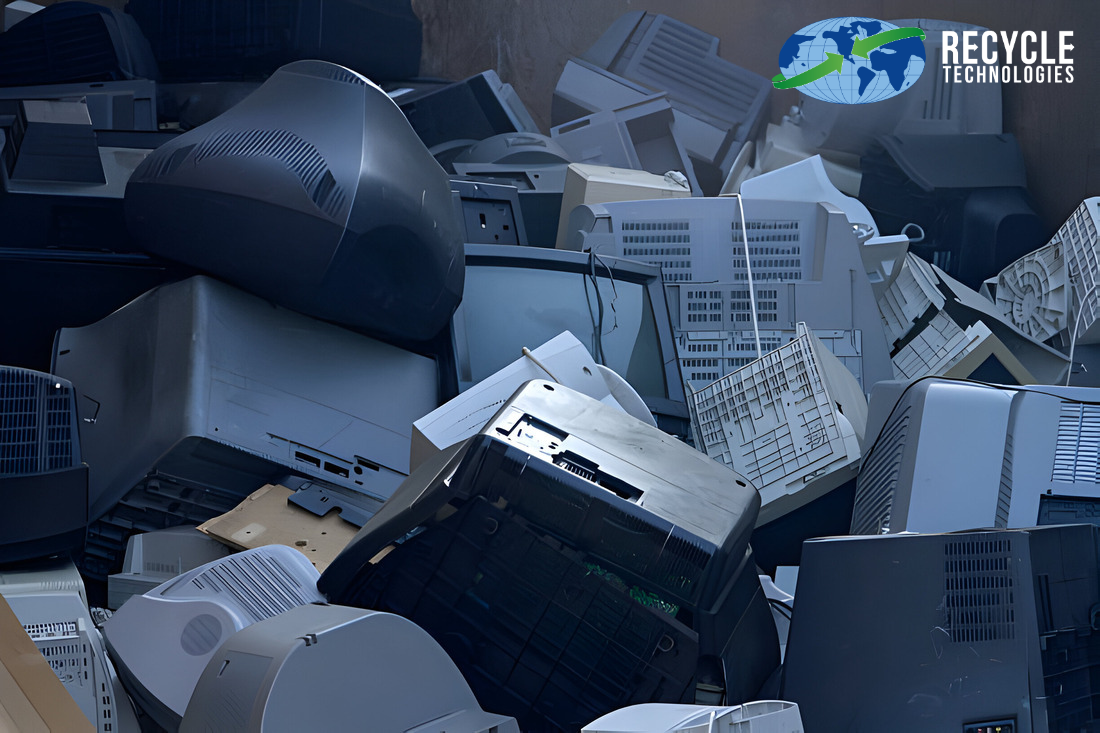Save disposal of TV sets in a sustainable way is paramount. TV recycling has received global attention in the past few years. Open Burning of old tubes produces toxic fumes and leachate contaminates groundwater injurious to health or the environment. It comes under the category of e-waste classification for being hazardous waste.
The fast-changing technology has compelled users to buy new TV sets that vary in composition and functionality. It has increased the overall percentage of global e-waste. The recycling process is intricate. Only recycling facilities can dispose of your e-waste according to standards.
RTI is one of the most reliable e-waste recycling facilities. We are committed to ensuring the safe disposal of TV waste and curbing human exposure to contamination.
In this blog, we will learn why TV recycling is important, what is the composition of this type of e-waste, and what are the benefits of recycling TVs by using an RTI facility.
Why TV Recycling Is Important?
TV recycling is important to prevent leachate from contaminating soil and waterways. Heavy metals such as cadmium, mercury, chromium, lead, etc. are carcinogenic and lethal to health. These metals vary in composition from TV sets upon recycling. Open Buring of TV sets is also prohibited as it produces toxic fumes polluting the air. It is best to recycle them by getting rid of bulky electronic waste appliances.
Classification of the TV set:
They are classified into two main categories as the technology replaces the previous one and each of us has piled up electronic waste in the backyard.
CRT: Cathode-Ray tube:
Cathode-ray tube TVs are old-fashioned and used till the late 2000s. These TV sets use phosphorescent screens. During the recycling process, copper wire, steel, plastic, PCBS, and tubes are extracted. The tube contains phosphorus and lead which are harmful to the environment.
Flat screen:
Flat-screen television sets are made from plastic, steel, glass, aluminum, and PCBS. This includes LCD, LED, OLED, and plasma. The quality of pictures has improved in the 21st Century by using liquid-crystal displays. LED-light emitting diode TVs are quite popular for being more energy efficient. The screens are brighter and clearer than LCD.
Organic Light-emitting diodes provide the best image quality. Plasma screens were popular for large screens of 32 inches. They are used for purpose but contain hazardous materials that are illegally disposed of and crushed in landfills.
Why Choose Recycle Technology For TV recycling?
Compliance With Regulations
Recycle Technology complies with regulations for safe e-waste disposal like old or broken TVs. Environmental standards are considered for water and air emissions, e-waste management, etc. Following rules avoid penalties or fines for unsafe disposal practices.
Supporting The Circular Economy:
Recycle Technology facilities can recycle TV supporting the circular economy. Resources are reclaimed to extend the shelf life of products or materials. It improves the overall impact on the environment.
Preventing Toxic Waste In The Environment
CRTS TVs containing hazardous materials are recycled at RTI facilities. We are committed to disposing of TV electronic waste with a zero-emission pledge. We are contributing to preventing toxic waste impact on the environment and health.
Resource Conservation
Television sets consist of valuable resources such as metals. It reduces the pressure on mining activities. RTI helps in resource conservation. It takes the responsibility of contributing to a sustainable approach towards electronic waste management.
Data Security
RTI adopts safe TV recycling processes in terms of data privacy. We carefully wipe data of personal information stored on the TV. We give top priority to protecting your privacy and data.
Conclusion:
It is a good approach to plan for TV recycling. RTI can help you to dispose of them appropriately. To avoid throwing e-waste into open dumping sites, we are here to recycle it for you. The need for tube recycling is to take the social responsibility for reducing our hazardous waste. Television sets consist of precious metals and materials that must be recycled or reused.
Please visit our website, we provide sustainable TV recycling facilities near your location.












